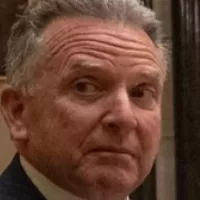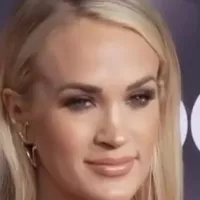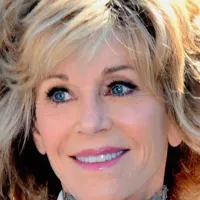Bermuda is a British Overseas Territory located in the North Atlantic Ocean. It is situated approximately 1,035 kilometers (643 miles) west-northwest of North Carolina, United States. As an overseas territory, Bermuda's governance and international relations are influenced by the United Kingdom.
1901: Bermuda part of North American and Australasian department
In 1901, the departments of the Colonial Office included the North American and Australasian department to which Bermuda was a part.
June 1902: Escape of Captain Fritz Joubert Duquesne
On the night of 25 June 1902, Captain Fritz Joubert Duquesne, a Boer prisoner of war, escaped from his internment by swimming to the main island.
1902: Boer prisoners of war housed on islands
During the Anglo-Boer War, in 1902, 5,000 Boer prisoners of war were housed on five islands of Bermuda, separated based on their views of the war.
1907: Newfoundland attains Dominion status
In 1907, Newfoundland attained Dominion status.
1907: Newfoundland becomes the Dominion of Newfoundland
In 1907, the Colony of Newfoundland became the Dominion of Newfoundland, leaving Bermuda as the sole remaining British North American colony.
1908: Bermuda included in West Indian Division
By 1908, the Colonial Office included two departments. The Crown Colonies Department was made up of a West Indian Division that included Bermuda.
1914: Emigration of Dame Lois Browne-Evans' parents and grandparents to Bermuda
In 1914, the parents and grandparents of Dame Lois Browne-Evans emigrated to Bermuda from Nevis and St. Kitts.
1918: Early Easter Lily bulb exports decreased
In 1918, Bermuda's early Easter Lily bulb exports totaled 23 cases.
1919: Bermuda receives its own bishop
In 1919, Bermuda received its own bishop.
1920: Start of Prohibition in the United States
In 1920, the era of Prohibition began in the United States, and Bermuda became one of the centers for illegal alcohol smuggling.
1922: Last record of sweat bee species
In 1922, the sweat bee Lasioglossum semiviridie was last recorded in Bermuda.
1927: Early Easter Lily bulb exports increased
In 1927, after controls were instituted, Bermuda exported 6,043 cases of lily bulbs from 204 fields.
1930: First aeroplane reaches Bermuda
In 1930, after several failed attempts, a Stinson Detroiter seaplane flew to Bermuda from New York City, marking the first aeroplane to reach the islands.
1930: US Smoot–Hawley Tariff Act
In 1930, the US Smoot–Hawley Tariff Act led to the demise of Bermuda's agricultural export trade and encouraged the development of tourism.
1931: Publication of "The History of Mary Prince"
In 1931, "The History of Mary Prince", a slave narrative by Mary Prince, was published.
1931: Opening of the Bermuda Railway
The Bermuda Railway opened in 1931.
1933: End of Prohibition in the United States
In 1933, the era of Prohibition ended in the United States.
1936: Deutsche Luft Hansa begins seaplane flights
In 1936, Deutsche Luft Hansa began experimenting with seaplane flights from Berlin via the Azores with continuation flights to New York City.
1937: Scheduled flying boat airline services begin
In 1937, Imperial Airways and Pan American Airways began operating scheduled flying boat airline services from New York and Baltimore to Darrell's Island, Bermuda.
May 1940: US requests base rights in Bermuda
In May 1940, the United States requested base rights in Bermuda from the United Kingdom; however, Winston Churchill was initially hesitant.
September 1940: UK grants US base rights in Bermuda
In September 1940, as part of the Destroyers for Bases Agreement, the United Kingdom granted the United States base rights in Bermuda. Bermuda and Newfoundland were added to the agreement, with no war material received by the UK in exchange.
1941: Construction of Two Airbases Began
In 1941, construction commenced on two airbases, which included 5.8 km (2.2 sq mi) of land, primarily reclaimed from the sea.
1941: US Army Established Bermuda Base Command
In 1941, the US Army established the Bermuda Base Command to coordinate its air, anti-aircraft, and coast artillery assets during the war.
1942: US Navy Operated Submarine Base on Ordnance Island
From 1942, the US Navy operated a submarine base on Ordnance Island.
1942: Arrest of Col. Duquesne
In 1942, Col. Duquesne was arrested by the FBI for leading the Duquesne Spy Ring, the largest espionage case uncovered in the history of the United States.
1943: RAF Transport Command Relocates
In 1943, during the war, RAF Transport Command relocated from Darrell's Island to the airfield that the US Army built.
1945: End of US Navy Submarine Base Operation
The US Navy ceased operations at its submarine base on Ordnance Island in 1945.
1948: Commercial airline service begins
In 1948, a regularly scheduled commercial airline service began operating, using land-based aeroplanes landing at Kindley Field (now L.F. Wade International Airport).
1948: Abandonment of the Bermuda Railway
In 1948, the Bermuda Railway was abandoned.
1950: Pre-Desegregation School System
Prior to 1950, the Bermuda school system was racially segregated.
1951: Rediscovery of the Bermuda petrel
In 1951, the Bermuda petrel or cahow was rediscovered after having been thought extinct since the 1620s.
1952: British Realm replaces Dominion
In 1952, the term British Realm replaced Dominion.
December 1953: First summit held in Bermuda
In December 1953, the first summit was held in Bermuda, at the insistence of Prime Minister Winston Churchill, to discuss relations with the Soviet Union during the Cold War. Participants included Churchill, US president Dwight D. Eisenhower and French premier Joseph Laniel.
1953: Bermuda becomes the Apostolic Prefecture of Bermuda Islands
In 1953, Bermuda was separated from the Archdiocese of Halifax, Nova Scotia, to become the Apostolic Prefecture of Bermuda Islands.
1954: Naval Facility Bermuda Established
In 1954, a US Army coast artillery bunker was converted into Naval Facility Bermuda (NAVFAC Bermuda), a submarine-detecting SOSUS station.
1957: Second summit conference held
In 1957, a second summit conference was held. The British prime minister, Harold Macmillan, arrived earlier than President Eisenhower, to demonstrate they were meeting on British territory.
1961: Third summit with President John F. Kennedy
In 1961, Harold Macmillan returned for the third summit with President John F. Kennedy to discuss Cold War tensions arising from construction of the Berlin Wall.
1965: Enactment of School Desegregation
In 1965, the desegregation of schools was enacted, leading some schools to become private.
1966: Bermuda Police Force begins recruiting from British West Indian police forces
In 1966 the Bermuda Police Force began also recruiting constables from British West Indian police forces, starting with seven constables from Barbados.
1967: Universal suffrage adopted
In 1967, universal suffrage was adopted as part of Bermuda's Constitution; voting had previously been dependent on property ownership.
1968: Constitution of Bermuda came into force
In 1968, the Constitution of Bermuda came into force and has been amended several times since then.
1968: UBP Government
In 1968, the UBP began its term in government.
1970: Currency Switch
In 1970, Bermuda switched its currency from the Bermudian pound to the Bermudian dollar, which is pegged at par with the US dollar.
1970: Kindley Air Force Base Transferred to US Navy
In 1970, Kindley Air Force Base on the eastern coast was transferred to the US Navy and redesignated Naval Air Station Bermuda.
1971: Bermuda Report for the year
The "Bermuda Report for the year 1971" recorded concerns about recruitment practices.
March 1973: Assassination of Governor Richard Sharples
On 10 March 1973, the governor of Bermuda, Richard Sharples, was assassinated.
1973: Establishment of CARICOM
In 1973, CARICOM, a socio-economic bloc of nations in or near the Caribbean Sea, was established.
1976: West Indian Association of Bermuda co-founded
In 1976, John Evans, a Trinidadian-born individual and husband of Dame Lois Browne-Evans, co-founded the West Indian Association of Bermuda.
1986: Founding of Masterworks Museum of Bermuda Art
In 1986, Tom Butterfield founded the Masterworks Museum of Bermuda Art.
1987: Hurricane Emily strikes Bermuda
In 1987, Hurricane Emily was the first hurricane in three decades to directly strike Bermuda without warning.
August 1989: Highest recorded temperature in Bermuda
In August 1989, the highest recorded temperature in Bermuda was 34 °C (93 °F).
1990: Margaret Thatcher meets George H. W. Bush
In 1990, British prime minister Margaret Thatcher met US president George H. W. Bush in Bermuda.
1990: Forest cover in Bermuda
In 1990, the forest cover in Bermuda was equivalent to 1,000 hectares of forest.
1995: Closure of HMS Malabar
In 1995, HMS Malabar, a Royal Navy supply base, was closed along with American and Canadian bases.
1995: US Forces Withdrew
In 1995, US forces withdrew as part of base closures after the Cold War, despite a 99-year lease.
1995: Independence referendum rejected
In 1995, a referendum on possible independence for Bermuda was decisively rejected.
1995: End of American military presence
In 1995, the American military presence in Bermuda, which included a naval air station and submarine base, came to an end.
1996: Premier David Saul meets President Bill Clinton
In 1996, Premier David Saul met with President Bill Clinton at the White House.
1996: Bermuda Education Act
The Bermuda Education Act of 1996 defines the categories of schools that can operate in the Bermuda Education system.
1998: Establishment of Bermuda's basketball association
In 1998, Bermuda established its own basketball association.
1998: UBP out of government
In 1998, the UBP government's term ended.
2000: Identified Bermudian ancestry
In the 2000 census, 51% of the population identified themselves with Bermudian ancestry.
2001: Uyghurs captured in Pakistan
In 2001, 22 Uyghurs were captured in Pakistan after fleeing the American aerial bombardment of Afghanistan.
June 2003: Average Cost of a House
In June 2003, The World Factbook listed the average cost of a house in Bermuda as $976,000.
July 2003: Bermuda becomes associate member of CARICOM
In July 2003, Bermuda became an associate member of the Caribbean Community (CARICOM).
September 2003: Hurricane Fabian hits Bermuda
On 5 September 2003, Hurricane Fabian, a major category 3 hurricane, directly hit Bermuda with wind speeds of over 120 mph (190 km/h).
2004: Bermuda at the 2004 Summer Olympics
In 2004, Bermuda competed in sailing, athletics, swimming, diving, triathlon and equestrian events at the Summer Olympics. Katura Horton-Perinchief became the first black female diver to compete in the Olympic Games.
2005: Uyghurs cleared for release from Guantánamo
In 2005 the Uyghurs were cleared as safe for release from Guantánamo.
2005: Workforce demographics in Bermuda
In 2005, Bermuda's total workforce was 38,947 people, with 11,223 (29%) being non-Bermudians.
2005: Affordability of Housing
In 2005, the affordability of housing became a prominent issue during Bermuda's business peak.
2006: Government Provides Financial Support to Sports Teams
In 2006, the Government announced it would provide financial support to Bermuda's cricket and football teams. Also, in 2006, the Bermuda Hogges were formed.
2006: Uyghurs cleared for release from Guantánamo
In 2006, the Uyghurs were cleared as safe for release from Guantánamo.
October 2007: 25th PGA Grand Slam of Golf
In October 2007, Bermuda hosted the 25th PGA Grand Slam of Golf at the Mid Ocean Club.
2007: Real Estate Prices Claimed to Rise
By 2007, real estate agencies claimed that the average cost of a house had risen to between $1.6 million and $1.845 million, though these figures were disputed.
2007: Marion-Bermuda yacht race
In 2007, the 16th biennial Marion-Bermuda yacht race occurred.
2007: United States Virgin Islands seek ties with CARICOM
In 2007, the United States Virgin Islands announced that they would seek ties with CARICOM.
June 2008: Premier Ewart Brown meets President George W. Bush
On 23 June 2008, Premier Ewart Brown and President George W. Bush met. This was the most recent meeting between the president of the United States and the premier of Bermuda.
September 2008: Uyghurs cleared of all suspicion
In September 2008, the men were cleared of all suspicion and Judge Ricardo Urbina in Washington ordered their release.
2008: Tourism Vulnerable to External Shocks
In 2008, Bermuda's tourism sector was vulnerable to external shocks, such as the recession.
2008: Museum opened in Botanical Gardens
In 2008, the Masterworks Museum of Bermuda Art opened its new building, constructed within the Botanical Gardens.
2008: PGA Grand Slam of Golf Returns to Bermuda
In 2008, the PGA Grand Slam of Golf returned to Bermuda.
May 2009: Approval of Government Application to UWI
In May 2009, the Bermudian Government's application was approved to become a contributory member of the University of the West Indies (UWI).
June 2009: Bermuda and Palau agree to accept Uyghurs
In June 2009, Bermuda and Palau agreed to accept the 22 men from Guantanamo Bay.
June 2009: Four Uyghurs transferred to Bermuda
On 11 June 2009, four Uyghurs who had been held in the United States Guantánamo Bay detention camp, in Cuba, were transferred to Bermuda.
2009: PGA Grand Slam of Golf Returns to Bermuda Again
In 2009, the PGA Grand Slam of Golf returned to Bermuda for another year.
2010: Bermuda's Membership Enabled Bermudian Students
By 2010, Bermuda's membership enabled Bermudian students to enter the University of the West Indies at a subsidised rate. Bermuda also became an "associate contributing country" due to local laws.
2010: Identified Bermudian ancestry
In 2010, About 64% of the population identified themselves with Bermudian ancestry
2010: Unveiling of "We Arrive" Sculpture
In 2010, Alfred Birdsey's sculpture "We Arrive" was unveiled in Barr's Bay Park to commemorate the freeing of slaves from the American brig Enterprise in 1835.
2010: Religion in Bermuda
In 2010, Christianity was the largest religion on Bermuda, with various Protestant denominations being dominant at 46.2%.
2010: Death of Brian Burland
In 2010, the novelist Brian Burland passed away. He had achieved international success and acclaim.
2010: Portuguese introduced as foreign language
Since 2010, Portuguese has been taught as an optional foreign language in the Bermudian school system.
2011: Google's tax avoidance
In 2011, Google shifted over $10 billion in revenue to its Bermuda subsidiary, reducing its tax liability by $2 billion.
2013: Bermuda chairs the United Kingdom Overseas Territories Association
In 2013 Bermuda chaired the United Kingdom Overseas Territories Association.
2013: Bermuda hosts Island Games in 2013
In 2013, Bermuda hosted the biennial Island Games.
2013: Bermuda Hogges Folded
In 2013, the Bermuda Hogges, Bermuda's first professional football team, folded.
March 2014: Consolidated Assets of Banks in Bermuda
In March 2014, the four banks operating in Bermuda had consolidated total assets of $24.3 billion.
October 2014: Hurricane Gonzalo strikes Bermuda
On 18 October 2014, Category 2 Hurricane Gonzalo struck Bermuda directly, causing significant damage.
October 2016: Hurricane Nicole strikes Bermuda
On 14 October 2016, Category 3 Hurricane Nicole struck Bermuda directly, causing significant damage.
2016: Bermuda census
According to the 2016 Bermuda census 5.6% of Bermuda residents were born in the US, representing over 18% of all foreign-born people.
2016: Healthcare providers in 2016
As of 2016, approved healthcare providers in Bermuda included the Bermudian government's Health Insurance Department, three other licensed health insurance companies, and three government-provided health insurance schemes.
2016: Bermuda's biocapacity deficit
In 2016, Bermuda had a biocapacity deficit, using 7.5 global hectares of biocapacity per person while only having 0.14 global hectares of biocapacity per person within its territory.
2016: Racial Makeup of Bermuda
The 2016 census recorded the racial makeup of Bermuda as 52% Black, 31% White, 9% multiracial, 4% Asian, and 4% other races, based on self-identification.
2017: Bermuda chairs the United Kingdom Overseas Territories Association
In 2017 Bermuda chaired the United Kingdom Overseas Territories Association.
2017: Hospital statistics in 2017
In 2017, Bermuda had approximately 6,000 hospital admissions, 30,000 emergency department attendances, and 6,300 outpatient procedures.
June 2018: Public holiday announced
In June 2018, Premier Edward David Burt announced that 4 November 2019 would be declared a public holiday to mark the 170th anniversary of the arrival of the first Portuguese immigrants in Bermuda.
July 2018: Estimated Population of Bermuda
As of July 2018, the population of Bermuda was estimated to be 71,176.
July 2018: Conscription Abolished
Conscription in Bermuda was abolished on July 1, 2018.
August 2018: Uyghurs granted limited citizenship in Bermuda
In August 2018, the four Uyghurs were granted limited citizenship in Bermuda, giving them the same rights as Bermudians except the right to vote.
2018: Bermuda Hospitals Board statement on paramedics in 2018
In 2018, the Bermuda Hospitals Board stated that paramedics were not vital in Bermuda due to the island's small size.
November 2019: Public holiday marking anniversary
In November 2019, a public holiday was held to mark the 170th anniversary of the arrival of the first Portuguese immigrants in Bermuda.
2019: Bermuda's GDP Per Capita
As of 2019, Bermuda had the 6th-highest GDP per capita in the world.
2019: Bermuda National Football Team Qualifies for CONCACAF Gold Cup
In 2019, the Bermuda national football team managed to qualify for the CONCACAF Gold Cup.
October 2020: Progressive Labour Party holds power
In October 2020, the Progressive Labour Party held onto power following elections, and Edward David Burt was sworn in as Premier for the second time.
2020: Bermuda wins first Olympic gold medal
At the 2020 Summer Olympics, Flora Duffy won Bermuda's first ever Olympic gold medal in the women's triathlon, making Bermuda the smallest overseas territory to earn a gold medal.
2020: Hurricane Paulette hits Bermuda
In 2020, Category 2 Hurricane Paulette directly hit Bermuda.
2020: Forest cover in Bermuda
In 2020, the forest cover in Bermuda was around 20% of the total land area, equivalent to 1,000 hectares of forest.
2020: Formation of the Bermuda Coast Guard
In early 2020, the Royal Bermuda Regiment formed the Bermuda Coast Guard to provide 24-hour on-duty service.
March 2021: New visa policy implemented
In March 2021, the government implemented a new visa policy towards foreigners, through which residency can be obtained by way of investing at least $2.5 million in "real estate, Bermuda government bonds, a contribution to the island's debt relief fund or the Bermuda Trust Fund, and charity", among other options.
August 2024: Hurricane Ernesto hits Bermuda
On 17 August 2024, Hurricane Ernesto hit Bermuda directly as a weakening Category 1 storm.
January 2025: Andrew Murdoch sworn in as governor
In January 2025, Andrew Murdoch was sworn in as the governor of Bermuda.
Mentioned in this timeline

Basketball is a team sport played on a rectangular court...

Bill Clinton served as the nd U S President from...

John F Kennedy JFK was the th U S President...

George W Bush the rd U S President - is...
The United States of America is a federal republic located...

Google LLC is a multinational technology corporation specializing in a...
Trending

8 seconds ago Steve Witkoff involved in tense Geneva meeting before US-Iran conflict escalation.

59 minutes ago Carrie Underwood's 'American Idol' connection boosts ABC ratings during Hollywood Week.

59 minutes ago Kelsey Plum and Breanna Stewart discuss WNBA labor negotiations and potential strike.

59 minutes ago Jane Fonda Skewers Trump and Leads Comedy Skit Post Paramount-Warner Bros. Deal
59 minutes ago Drone attack targets US troops in Baghdad, Iraq; tensions rise with Peshmerga attacks.

60 minutes ago Hugo González shines as Neemias Queta's record night boosts Boston Celtics' victory.
Popular

Jesse Jackson is an American civil rights activist politician and...

Hillary Diane Rodham Clinton is a prominent American politician lawyer...

Jim Carrey is a Canadian-American actor and comedian celebrated for...

XXXTentacion born Jahseh Dwayne Ricardo Onfroy was a controversial yet...

Kashyap Pramod Patel is an American lawyer who became the...

Michael Joseph Jackson the King of Pop was a highly...
